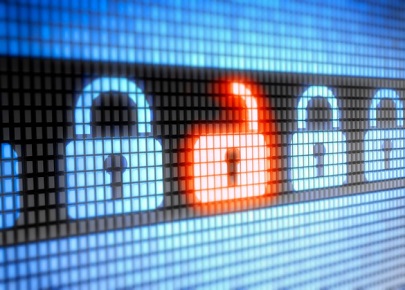
Maybe you´ve heard a lot about identity theft and data security breaches lately. Maybe you´re starting to feel a bit uneasy about the situation and might have gotten somewhat concerned with what is going on around the world with private information being sold on the black market. But, believe it or not, getting scared is a good sign. It means you’re aware of the danger, and this is the first step to avoid identity theft and start protecting your privacy.
Internet hackers have been busy during 2014, and the media has been giving a lot of coverage to the breaches that big companies like Target or Home Depot have suffered. Many organizations have been hacked in the past few months. Criminals are stealing personal data from thousands of people especially in the United States, and this is causing some panic with consumers. Although it might seem that hackers are getting very good at what they do –which we do not doubt- there is another important factor in the equation: negligence. Simple human mistakes are opening the doors for criminals to come in, and they are taking every opportunity they find.
For instance, Healthcare.gov test servers were hacked because nobody cared to change the manufacturer’s default password, nor did they care about security scans for these servers. Perhaps no large scale website puts your data at risk more than the Obamacare debacle of a website. If possible, this website is best avoided.
The celebrities’ pictures that were recently leaked were most likely a result of clicking on the wrong link and giving away usernames and passwords (phishing) than to complex programming that could get through Apple´s iCloud security. Most of the recent cases have similar stories, which reveals that as individuals and as organizations we have not taken online security and privacy seriously.
The good news is that all the buzz about data breaches is creating a new atmosphere of awareness, and people are starting to pay a bit more attention on online privacy configurations and security best practices. Privacy is being lost faster than at any rate in history. It is a privilege that we need to protect with every tool we´ve got. The following information should help you in the fight, and keep you safe.
Prevention is key. Here´s what to do.
A conscious use of the internet is part of the deal if you want to protect yourself from identity theft.
What about offline?
Target, Home Depot, UPS and who knows how many others have demonstrated that credit card information is not safe with everyone. Maybe more companies will be using them as an example of what not to do with their customers’ info, and hopefully they are strengthening their systems right now. But in the meantime:
C. Wright
© 2014 Wymoo International
![]()
© Copyright 2014 Wymoo International. All Rights Reserved. This content is the property of Wymoo International, LLC and is protected by United States and international copyright laws.